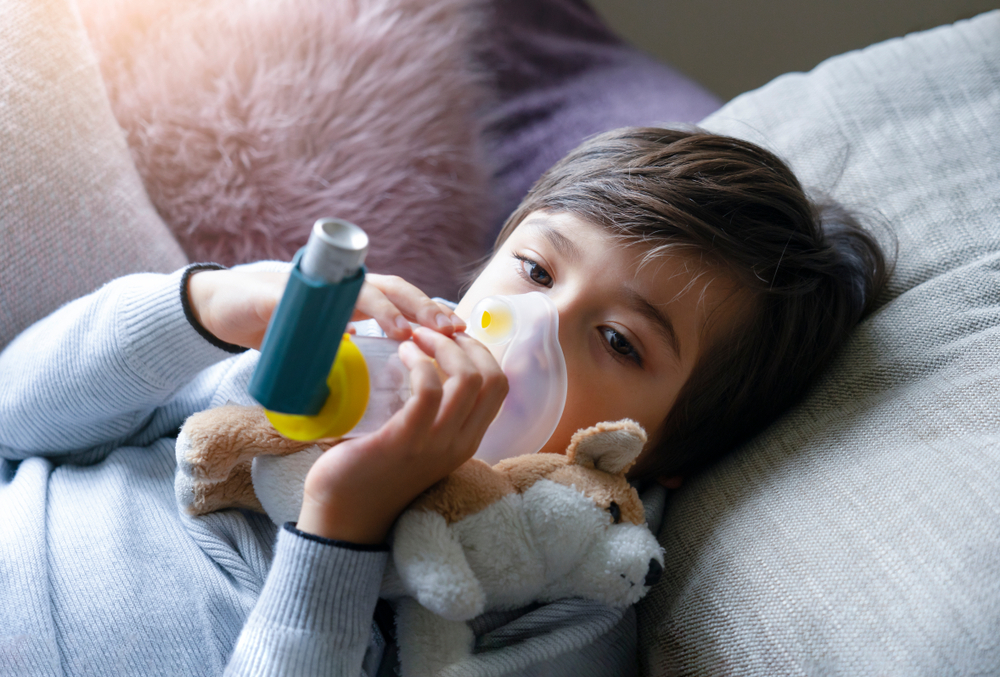Definition
Asthma is an inflammatory disorder of the airways, which causes attacks of wheezing, shortness of breath, chest tightness, and coughing.
Causes
Asthma is caused by inflammation in the airways. When an asthma attack occurs, the muscles surrounding the airways become tight and the lining of the air passages swell. This reduces the amount of air that can pass by, and can lead to wheezing sounds.
In sensitive individuals, asthma symptoms can be triggered by breathing in allergy-causing substances ( called allergens or triggers ).
Common asthma triggers include:
- Animals ( pet hair or dander )
- Dust
- Changes in weather ( most often cold weather )
- Chemicals in the air or in food
- Exercise
- Mold
- Pollen
- Respiratory infections, such as the common cold
- Strong emotions ( stress )
- Tobacco smoke
Aspirin and other nonsteroidal anti-inflammatory drugs ( NSAIDs ) provoke asthma in some patients.
Symptoms
- Cough with or without sputum ( phlegm ) production
- Shortness of breath that gets worse with exercise or activity
- Pulling in of the skin between the ribs when breathing ( intercostals retractions )
- Wheezing
Emergency symptoms
- Bluish color to the lips and face
- Decreased level of alertness such as severe drowsiness or confusion, during an asthma attack
- Extreme difficulty breathing
- Rapid pulse
- Severe anxiety due to shortness of breath
- Sweating
Prevention
- Asthma symptoms can be substantially reduced by avoiding known triggers and substances that irritate the airways.
- Bedding can be covered with "allergy proof" casings to reduce exposure to dust mites. Removing carpets from bedrooms and vacuuming regularly is also helpful. Detergents and cleaning materials in the home should be unscented.
- Keeping humidity levels low and fixing leaks can reduce growth of organisms such as mold. Keep the house clean and keep food in containers and out of bedrooms -- this helps reduce the possibility of cockroaches, which can trigger asthma attacks in some people.
- If a person is allergic to an animal that cannot be removed from the home, the animal should be kept out of the patient's bedroom. Filtering material can be placed over the heating outlets to trap animal dander.
- Eliminating tobacco smoke from the home is the single most important thing a family can do to help a child with asthma. Smoking outside the house is not enough. Family members and visitors who smoke carry smoke residue in and on their clothes and hair -- this can trigger asthma symptoms.


